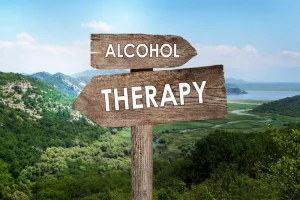
These resources provide a valuable community for individuals in recovery, promoting abstinence and healthier lifestyle choices to prevent relapse. Alcohol shakes generally occur due to alcohol withdrawal or brain damage relating to chronic alcohol consumption. Taking medications and engaging in healthier lifestyle habits can improve tremors.
Support systems

Alcohol withdrawal shakes, also known as tremors, are a common symptom of alcohol withdrawal syndrome. Fortunately, there are several treatment options available to help manage these symptoms. The severity of alcohol withdrawal shakes can vary depending on several factors, such as the amount and duration of alcohol consumption, age, and overall health status.
- Making time for hobbies you enjoy, ensuring you get enough rest, and practicing relaxation techniques that resonate with you’re key.
- Additionally, adopting healthy habits, maintaining a balanced diet, staying hydrated, and engaging in regular exercise can aid in preventing alcohol withdrawal shakes.
- As such, once the alcohol is removed from the body, the patient must undergo addiction treatment in an inpatient or outpatient setting.
- In this article, we provide a comprehensive guide on how to stop alcohol shakes and discuss effective treatments available for those experiencing alcohol tremors.
- For men experiencing persistent or severe tremors, our structured rehab program provides the professional care and support needed to address these symptoms effectively.
“Trust me—I’m more fun when I don’t drink.”
- Without proper medical supervision, individuals may experience seizures, hallucinations, or delirium tremens, which can be fatal in some cases.
- It emphasizes the importance of a multi-faceted approach to manage symptoms while being SEO-optimized for keywords related to alcohol shakes.
- If alcohol shakes are accompanied by confusion, hallucinations, high blood pressure, or seizures, immediate help is essential.
- Even symptoms that might seem less severe, like vomiting and sweating, can lead to dangerous dehydration, potentially resulting in fatal outcomes.
- Common symptoms include sweating, anxiety, insomnia, headaches, nausea, vomiting, and tremors.
- Economists worry large-scale reciprocal tariffs could further hurt a weakening economy and lead to higher prices for consumers.
Supervised detox provides a safe environment wherein medical experts can manage withdrawal symptoms and offers the necessary support in the early stages of recovery. Gradually reducing alcohol intake under medical supervision can help minimise withdrawal symptoms. The treatment and management of delirium tremens as well as other withdrawal symptoms is a key step towards recovery from alcohol addiction. This condition is a direct result of suddenly stopping heavy alcohol consumption. During the most severe stage of alcohol withdrawal, the patient’s health decline is evident. As such, the patient will require medical supervision during the 48 to 72-hour period.
How To Stop Alcohol Shakes & Tremors
When experiencing alcohol shakes, it’s essential to seek professional help for a safe and effective recovery process. Medical professionals can offer the necessary supervision and support during alcohol withdrawal, which can be a difficult and potentially risky phase. Most people find that alcohol withdrawal shakes resolve within a few days of abstaining from alcohol. However, it’s important to note that the cessation of shakes does not mean one has recovered from alcohol addiction. Professional assistance and ongoing support are often necessary to manage withdrawal symptoms effectively and address underlying issues.
How to Prevent Alcohol Shakes: Effective Strategies and Solutions

The more your physical and mental health improves, the less likely you are to experience tremors or other residual withdrawal symptoms, and the greater quality of life you will enjoy. Therefore, detoxification under medical supervision is always the safest option. Medical and addiction treatment professionals can best determine the appropriate detox and follow-up treatment program. EHN Canada’s recovery centres located throughout Canada provide evidence-based, compassionate treatment for alcoholism, drug addiction, and mental health issues. how to stop alcohol shakes Whether you need outpatient therapy for an alcohol abuse disorder, medical detox, or residential treatment for chronic alcoholism, please call us today to receive immediate assistance.

In contrast, delirium tremens (often abbreviated as DTs) represents the most severe form of alcohol withdrawal, occurring in a small percentage of individuals detoxifying from alcohol. DTs are marked by pronounced confusion, hallucinations, severe tremors, and autonomic hyperactivity, which can include rapid heartbeat and elevated blood pressure. Crucially, delirium tremens can be life-threatening and often requires immediate medical intervention.
Effective Strategies and Solutions to Stop Alcohol Shakes
Alcohol shakes, also known as tremors, are a common sign of alcohol withdrawal. They typically occur when someone who regularly drinks significant quantities of alcoholic beverages stops drinking, and the effect of alcohol starts wearing off. However, treatment strategies for shakes and alcoholism may differ for everyone. Doctors can recommend the most appropriate treatment according to the severity of a person’s withdrawal symptoms and general health conditions. It is generally prescribed to treat muscle spasticity in those suffering from multiple sclerosis, cerebral palsy, and spinal cord injuries.
Comprehensive Treatment Options
The shakes also called tremors can begin 6-10 hours after the last drink, and tend to be the most pronounced from the last alcohol consumption. Alcohol shakes are often one of the first indicators of alcohol withdrawal. Accompanying symptoms may include increased blood pressure, excessive sweating, accelerated breathing, nausea, vomiting, a rapid heartbeat, and irritability. Alcohol functions as a depressant, slowing down brain activity and affecting mood-regulating chemicals. When alcohol begins to leave the system of a heavy drinker, the brain experiences a surge of activity, leading to an overactive nervous system and resulting in tremors or shakes.
As such, once the alcohol is removed from the body, the patient must undergo addiction treatment in an inpatient or outpatient setting. When your body is in a state of stress due to alcohol withdrawal, it’s important to prioritize sleep to allow the marijuana addiction nervous system to reset. Incorporating relaxation techniques like deep breathing, progressive muscle relaxation, or meditation can calm the nervous system, alleviate tension, and reduce the frequency of tremors. These practices reduce the body’s stress response, which is a key factor in alcohol-induced shakes. Treatment may be inpatient or outpatient, and typically includes individual and group therapy, family counseling, alcohol education, 12-step support, and support for physical or psychological needs.
In response to a prompt about one thing prospective dates should know about her, for example, she noted that she was sober but didn’t have anything against those who weren’t. If matches suggested going to a bar, she said she was happy to, as long as the menu included non-alcoholic options. Making your preferences clear ahead of time helps weed out people you won’t mesh well with, while alleviating pre-date jitters, Gomez found. More people are drinking less alcohol—and sometimes, their friends take that personally. As a trusted Georgia recovery center, we are dedicated to serving our clients through various alcohol and drug addiction programs.